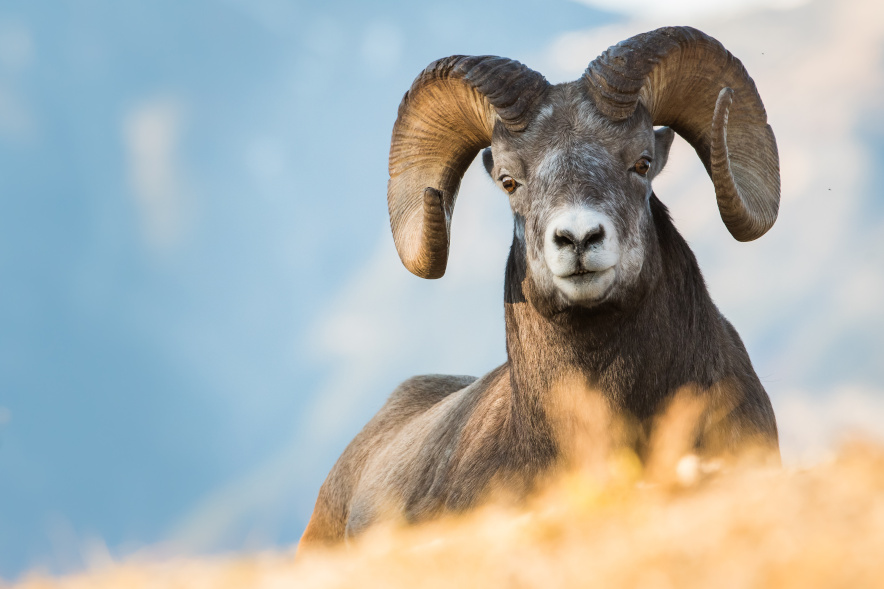In the heart of the great American West, where rugged landscapes meet untamed wilderness, lies the beautiful state of Oregon. Known for its diverse natural beauty, Oregon offers hunters a unique opportunity to pursue one of North America’s most prized big game species—the Rocky Mountain bighorn sheep. With its breathtaking mountain ranges and vast expanses of rugged terrain, Oregon provides an exhilarating hunting experience that challenges both the body and the mind. In this blog, we will delve into the world of hunting Rocky Mountain bighorns in Oregon and explore the allure and significance of this remarkable pursuit.
Understanding the Rocky Mountain Bighorn:
Before embarking on a hunting expedition, it is essential to gain a deep understanding of the species being pursued. Rocky Mountain bighorn sheep are renowned for their majestic appearance, with massive curling horns and a muscular build. Native to the high-altitude regions of the Rocky Mountains, these magnificent creatures have made their home in the rugged terrain of Oregon, adapting to the challenges of their environment. Exploring their behavior, habitat, and migration patterns equips hunters with the knowledge necessary to navigate their territory effectively.
The Hunting Seasons and Regulations:
To preserve the delicate balance of nature and ensure the sustainable management of wildlife populations, hunting seasons and regulations are in place. Understanding these regulations is crucial for responsible hunters. In Oregon, the hunting season for Rocky Mountain bighorns is carefully regulated to maintain the population’s health. The state’s wildlife management agencies closely monitor herd numbers, issuing a limited number of hunting permits through a lottery system. By respecting these regulations, hunters contribute to the conservation efforts and the long-term viability of bighorn populations.
Preparing for the Hunt:
Hunting Rocky Mountain bighorns requires meticulous preparation. From physical conditioning to acquiring the necessary equipment, hunters must be ready to tackle the demanding challenges of the rugged Oregon terrain. This section will cover essential aspects such as physical fitness, gear selection, scouting techniques, and navigation skills, ensuring that hunters are fully equipped to embark on their adventure.
The Hunt Begins:
As the sun rises over the Oregon mountains, hunters set foot into the bighorns’ domain, armed with their skills and anticipation. This section will delve into the exhilaration and intensity of the hunt. From tracking elusive herds to understanding their behavior and identifying suitable trophy specimens, the pursuit of a Rocky Mountain bighorn requires patience, determination, and an intimate connection with nature. Through descriptive narratives and personal anecdotes, we will paint a vivid picture of the challenges and rewards of the hunt.
Conservation and Ethical Hunting:
Hunting plays a vital role in wildlife conservation, and responsible hunters are at the forefront of conservation efforts. This section will highlight the importance of ethical hunting practices, such as selective harvesting, adhering to hunting regulations, and contributing to conservation organizations. By actively participating in conservation initiatives, hunters ensure the preservation of bighorn habitats and the long-term survival of the species.
The Thrill of the Trophy:
For many hunters, the ultimate reward lies in harvesting a trophy specimen—an extraordinary representation of the species they pursued. We will explore the significance of a Rocky Mountain bighorn trophy, not only as a symbol of accomplishment but also as a testament to the species’ resilience and the hunter’s dedication. Additionally, we will discuss the various ways hunters can honor the animal through taxidermy, storytelling, and sharing the experience with fellow outdoor enthusiasts.
Conclusion:
Hunting Rocky Mountain bighorns in the beautiful state of Oregon is a thrilling adventure that connects hunters to the natural world in profound ways. Through meticulous preparation, adherence to hunting regulations, and deep respect for the species and its habitat.
We Encourage and Welcome Comments
If you enjoyed this post, we would be very grateful if you’d help it spread by emailing it to a friend or sharing it on Twitter or Facebook. Thank you!





